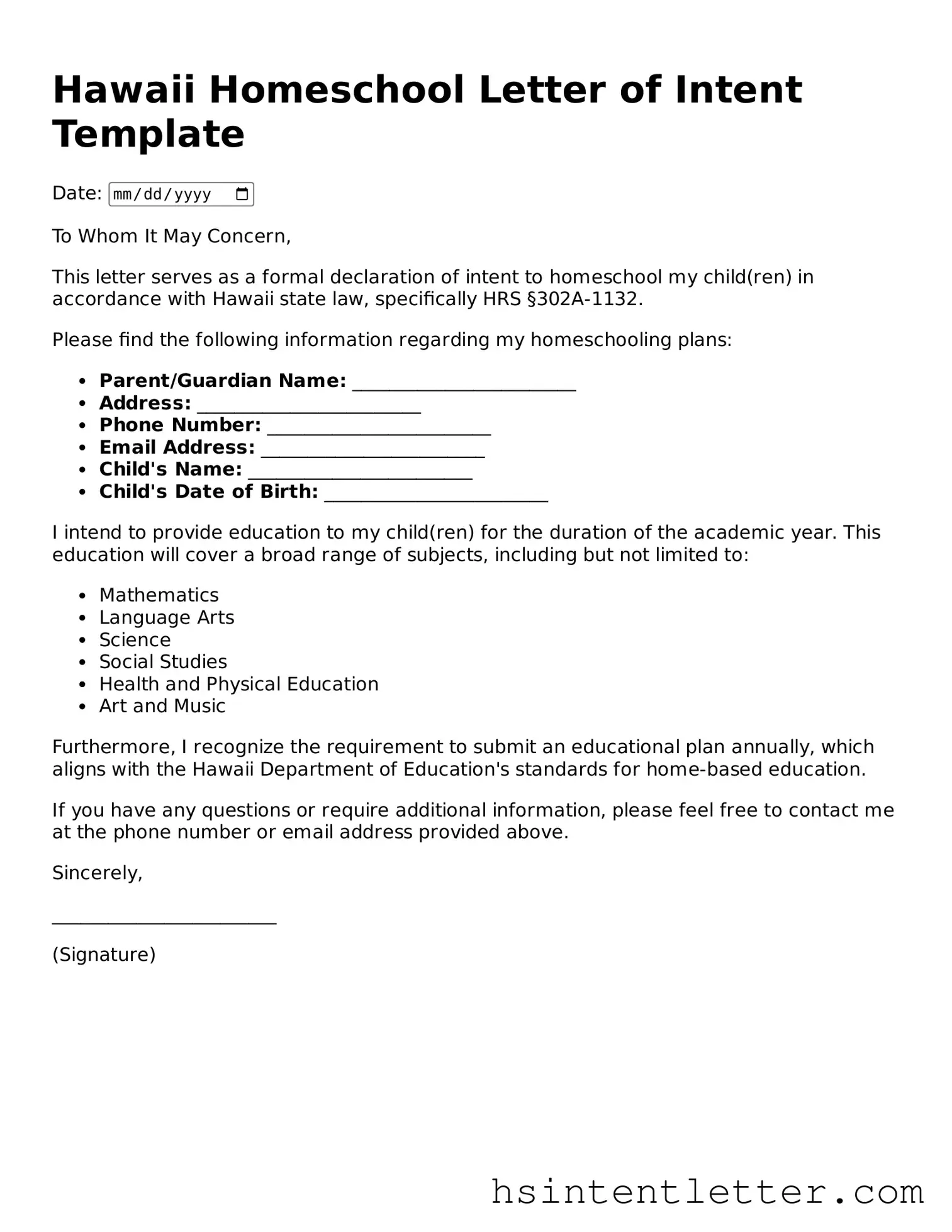What is the Hawaii Homeschool Letter of Intent form?
The Hawaii Homeschool Letter of Intent form is a document that parents or guardians must submit to inform the state that they intend to homeschool their children. This form serves as an official notification to the Department of Education and outlines the family's commitment to providing an educational experience outside of the traditional school setting.
Who needs to submit the Letter of Intent?
Any parent or guardian who wishes to homeschool their child in Hawaii must submit the Letter of Intent. This requirement applies to children who are of compulsory school age, which generally includes those between the ages of 6 and 18. It is important for parents to ensure that they comply with this requirement to avoid any legal issues.
When should the Letter of Intent be submitted?
The Letter of Intent should be submitted at the beginning of the school year or as soon as the decision to homeschool is made. It is advisable to submit the form before the start of the school year to ensure that the homeschooling program can begin without any interruptions. Additionally, if a child is transitioning from a public or private school to homeschooling, the form should be submitted promptly.
What information is required on the form?
The form typically requires basic information about the child, such as their name, age, and grade level. Parents will also need to provide their own contact information. Some forms may ask for details about the educational plan or curriculum that will be used, although this is not always mandatory.
Where can the Letter of Intent be submitted?
The completed Letter of Intent can be submitted to the local district office of the Hawaii Department of Education. Parents may have the option to submit the form in person, by mail, or sometimes electronically, depending on the district's policies. It is important to check with the specific district for their submission guidelines.
Is there a deadline for submitting the Letter of Intent?
While there is no strict deadline, it is recommended to submit the Letter of Intent as early as possible. Doing so allows for a smoother transition into homeschooling. If a family decides to homeschool mid-year, they should submit the form immediately to ensure compliance with state regulations.
What happens after the Letter of Intent is submitted?
Once the Letter of Intent is submitted, the family will typically receive confirmation from the Department of Education. This confirmation may include additional information about homeschooling requirements and resources available to families. Parents should keep a copy of the submitted form for their records.
Are there any consequences for not submitting the Letter of Intent?
Failing to submit the Letter of Intent may lead to legal issues, as homeschooling without proper notification can be considered a violation of state education laws. Parents may face consequences such as being required to enroll their child in a public or private school or facing fines. It is crucial for families to adhere to the regulations to avoid any complications.
Can the Letter of Intent be revoked?
Yes, a Letter of Intent can be revoked. If a family decides to discontinue homeschooling and enroll their child in a traditional school setting, they should notify the Department of Education. This ensures that the child's educational status is updated and that they are compliant with state laws.

